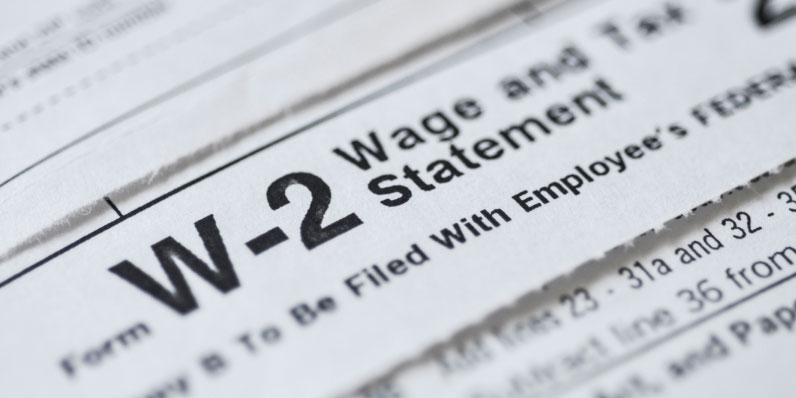Business Equity Loans Explained: Which Option Suits Your Needs
Sep 09, 2024 By Darnell Malan
When your business needs financing, a business equity loan might seem like a solid option. These loans allow you to borrow money against the equity youve built up in your business, offering access to significant capital for growth or operational needs.

However, not all business equity loans are created equal. To make the best choice for your company, its crucial to understand the differences between various types of equity loans and how they might align with your business goals.
What Is a Business Equity Loan?
A business equity loan is a type of loan where a business uses its assetsusually real estate or other significant propertyas collateral. The value of the loan is typically based on the equity the business has in these assets, meaning the difference between the market value of the asset and the remaining balance on any existing loans secured by that asset. Essentially, the more equity you have, the more you can borrow.
Types of Business Equity Loans
While business equity loans share the same basic principle, they come in several forms, each with unique characteristics. Understanding these types will help you decide which option is best for your business needs.
Traditional Equity Loans
Traditional equity loans involve borrowing a lump sum against the equity in your business assets. These loans are typically used for significant expenses like purchasing equipment, expanding operations, or long-term projects. Repayment terms usually range from 5 to 15 years, with either fixed or variable interest rates, depending on the lender.
This type of loan is ideal for businesses with a clear, long-term plan for using the funds. The fixed repayment schedule provides predictability, but it also demands a strong commitment, as failing to repay could result in the loss of your collateral.
Home Equity Line of Credit (HELOC)

A HELOC is popular among small business owners, especially those who use their homes as collateral. It functions more like a credit card, providing a line of credit you can draw from as needed, rather than a lump sum. This flexibility is advantageous if your business has fluctuating cash flow needs or if you want to avoid paying interest on unused funds. However, HELOCs often come with variable interest rates, which can complicate budgeting if rates increase.
Second Mortgage Loans
Second mortgage loans, also known as junior lien loans, allow you to borrow against your property's equity, even if you have an existing mortgage. These loans typically have higher interest rates than first mortgages due to the increased risk for lenders. While they can provide additional funds, they also increase your financial obligations. It's important to carefully consider your ability to meet these commitments before choosing a second mortgage loan.
Cash-Out Refinancing
Cash-out refinancing involves replacing your existing mortgage with a new one, often with better terms, while borrowing additional funds based on your propertys equity. The difference between the new mortgage amount and your old mortgages remaining balance is given to you in cash for business purposes. This option can lower your monthly payments or improve interest rates, but it extends the life of your mortgage and increases the total interest youll pay over time.
Comparing Business Equity Loans: Key Considerations
When comparing business equity loans, several factors should guide your decision. These factors include your businesss financial health, the amount of equity you have, your tolerance for risk, and your long-term business goals.
Interest Rates
Interest rates are one of the most critical factors when comparing business equity loans. They can vary widely depending on the type of loan, the lender, and your creditworthiness. Fixed interest rates provide stability, making it easier to budget your repayments, while variable rates can offer lower initial payments but may increase over time.
Consider whether your business can handle fluctuations in interest rates. If your revenue is stable and predictable, a variable rate might be manageable. However, if your income is inconsistent, a fixed rate might be the safer option.
Loan Amount and Terms
The amount you can borrow with a business equity loan depends on the value of your collateral and how much equity you have. Lenders typically allow you to borrow up to 80% of your equity, though this can vary.
The terms of the loan, including the repayment period and structure, also play a significant role. Longer terms mean lower monthly payments but more interest paid over time, while shorter terms increase your monthly burden but reduce the total interest. Match the loan terms to your businesss cash flow and financial plans.
Risk and Collateral
All business equity loans involve some level of risk since your assets are on the line. The primary risk is that if you fail to repay the loan, you could lose your collateral. This risk is higher with second mortgages and HELOCs, where the lender is taking a greater chance by being second in line for repayment.
Before choosing a loan, evaluate how much risk your business can tolerate. If losing the collateral would severely damage your business, you might want to explore other financing options or ensure that you have a solid plan for repaying the loan.
Flexibility
Different types of business equity loans offer varying levels of flexibility. Traditional loans offer stability but little flexibility, as you receive a fixed amount upfront and repay it over a set schedule. HELOCs, on the other hand, offer maximum flexibility, allowing you to borrow only what you need when you need it.
Consider how predictable your businesss financial needs are. If you expect to need ongoing access to capital, a HELOC might be the better choice. If you need a large sum for a specific purpose, a traditional loan could be more appropriate.
Advantages and Disadvantages of Business Equity Loans
Like any financial product, business equity loans have their pros and cons. Understanding these can help you decide whether this type of financing is right for your business.
Advantages of Business Equity Loans
Access to Large Amounts of Capital: Because your assets secure these loans, lenders are often willing to offer larger sums than with unsecured loans.
Lower Interest Rates: Secured loans typically have lower interest rates than unsecured loans, especially if you have significant equity.
Longer Repayment Terms: Business equity loans often have longer repayment terms, which can reduce monthly payments and make the loan more manageable.

Disadvantages of Business Equity Loans
Risk of Losing Assets: If your business fails to repay the loan, you could lose your collateral, which might be critical to your operations.
Increased Debt: Taking out an equity loan adds to your businesss debt load, which could affect your ability to borrow in the future.
Variable Interest Rates: HELOCs and some other equity loans come with variable interest rates, which can increase over time and make repayment more challenging.
Conclusion
Business equity loans can be a powerful tool for accessing capital, but they require careful consideration and planning. Understanding the different types of equity loans, comparing their terms and risks, and aligning them with your business goals are crucial steps in making an informed decision. By doing so, you can find a loan that not only meets your current financial needs but also supports your long-term business success.

Buy or Sell Stocks

Hiring a Business Tax Accountant: Key Considerations Guide

Unintended Harm: Is Fraud Prevention Hurting Financial Inclusion?

All About International Tax Competitiveness Index 2022

Form W-2: Definition and Working

What Does It Mean To Be Dependent? Everything You Have To Know

ETF vs. Index Fund: An Overview

Saving For Retirement: When Is It Too Late To Have Nothing Saved For Retirement

Business Equity Loans Explained: Which Option Suits Your Needs

